The work paradise now – Echos from the Future deals with the delicate time span between awakening and co-option of social utopias. On the basis of a historic film excerpt of the theater group “The Living Theatre” from 1968, visitors become part of a reenactment in which questions are raised about the possibility of connecting to imaginations of the future and body politics in a post-digital era.
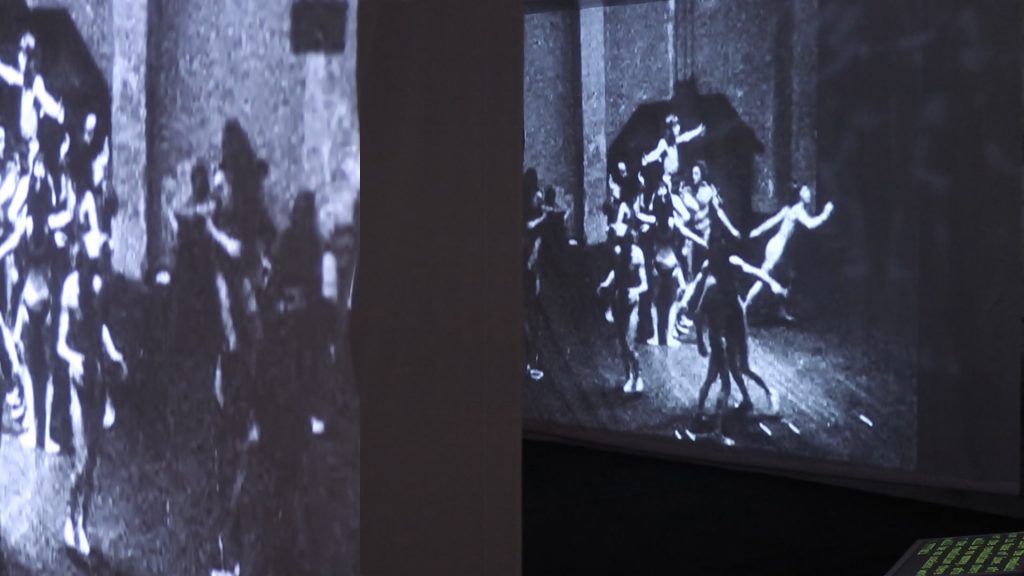
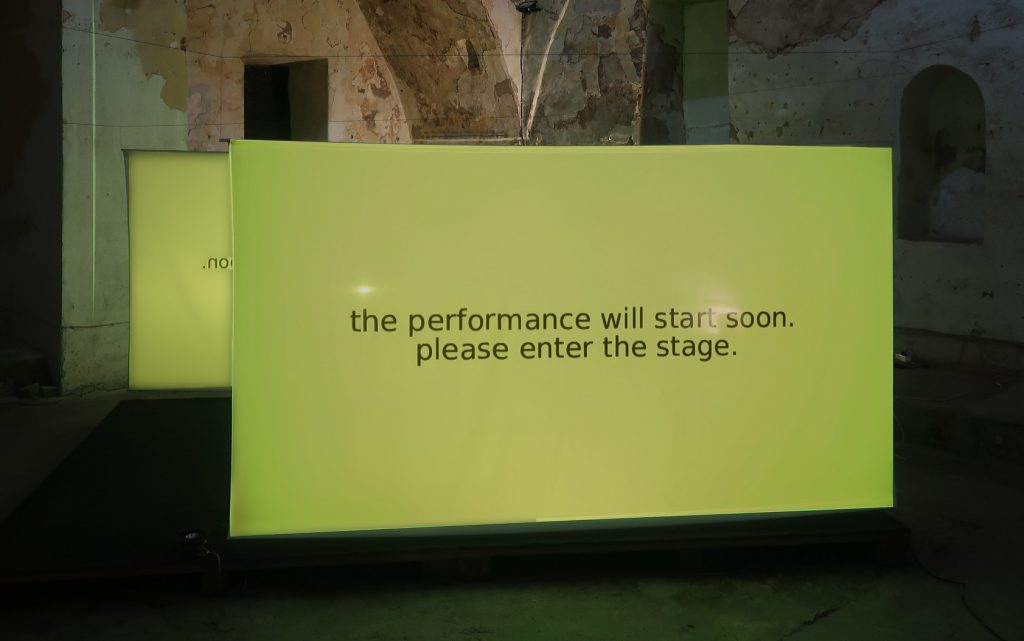
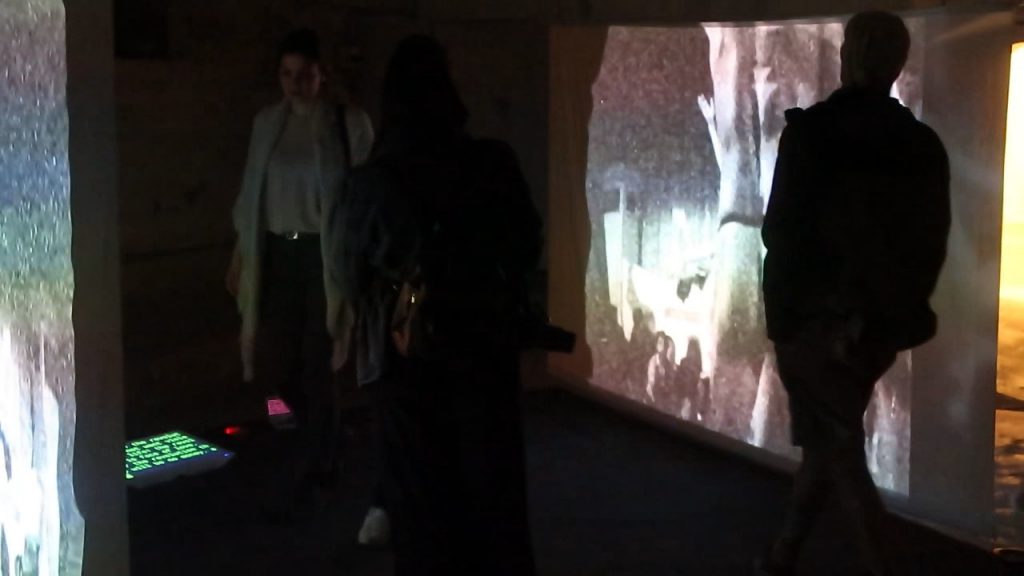
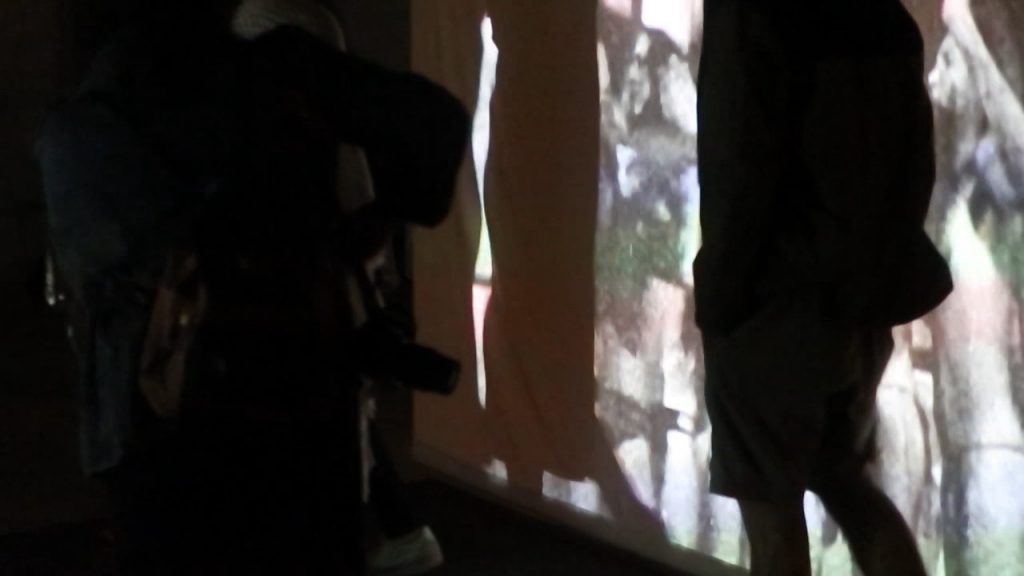
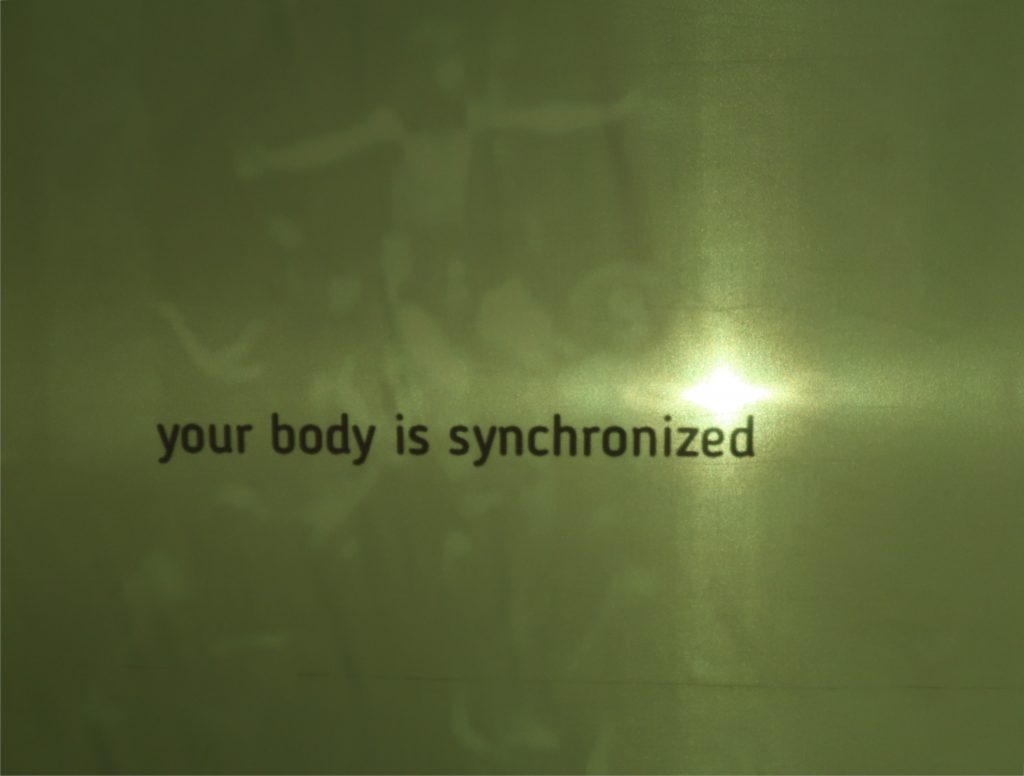
The post-dramatic theater group “The Living Theatre”, founded in 1947 in New York by Judith Malina and Julian Beck, developed in 1968, the year of the student and anti-war protests, the play “Paradise Now”, which premiered at the theater festival in Avignon on 24 July. The theater makers, who lived as a commune, had laid out their piece in eight “rungs”, whereby in the last scene (rung) the play was to be expanded into the street. This artistic crossing of boundaries in their practice of performing (and agitation) however met with censorship by state power: “the group shall abstain from any expansion of the targeted paradise to the entire city”. The play was removed from the theater festival in Avignon, and the group had to leave the city. Almost concurrently to the euphoric political mood in Europe and the USA, first experiments were started in Silicon Valley in the late 1960s to create communities through telecommunication. A result of this were the first computer networks. 1968 saw the emergence of ARPANET (Advanced Research Projects Agency Network), a predecessor of the Internet commissioned by the US Air Force in 1968 with a small research team under the leadership of the Massachusetts Institute of Technology (MIT) and the US Defense Department. The Californian counter-culture of the 1960s was not only the advent of the new leftist movements and a global cultural rebellion such as the ecological movement, critique of consumerism, campaigns against racism and sexual discrimination or militarism. The 1960s were also the starting point of techno-capitalism, the ideology of self-responsibility and self-regulation as well as the Internet neoliberalism on the basis of networking and marketing.
paradise now – Echos from the Future attempts to re-enact in the exhibition space contemporary questions regarding the effectiveness of imaginations of the future with the help of theater theory, which deals with the history of the relation between text, body and performance. Theatrical elements like a stage, the curtain that opens and stage directions are quoted. But unlike in classical theater the relation between text/script and performance is not fixed. An infrared camera measures the movements of visitors and re-synthesizes the historical material in sound and image. The dramaturgy is composed of separate scenes between which the stage directions and interactive parts alternate. Visitors can become part of the algorithm, be led by stage directions or refuse to do so. They can experience the relation between history, stage, podium, enactment, performance, text and programming in fragile interaction. This raises questions regarding a potential repetition of history and how the relation between text and body is changed in the post-digital age through a third hybrid figure such as algorithms, which unite both text and performance within them and thus take on quasi-corporal roles.